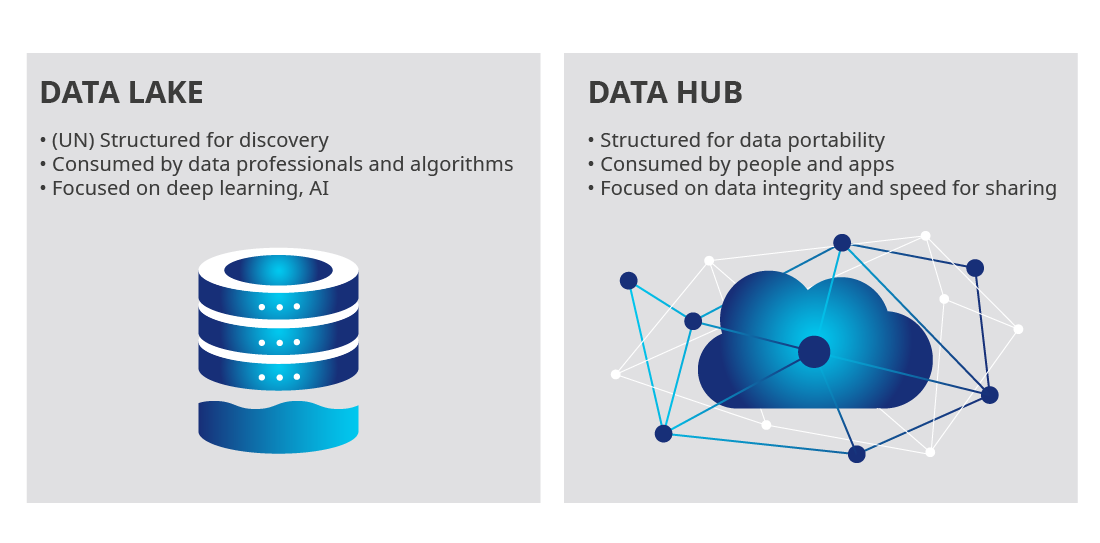Data in data hubs is collected and managed otherwise than in data lakes or data repositories. To define the right data storage for a project and to be able to merge, manage and analyze the data effectively, those responsible in the company should know how the systems differ from each other. Here is more about it.
The ways to organize your data?
The standard solutions for storage (corporate data warehouses) and information analysis in several companies often cannot cope with new volumes of data or become expensive when the data can still be downloaded. The high cost of storing and loading data into storage is a pressing issue for IT management. As a result, today, organizations are looking for new ways of data-driven decision-making. Therefore, the first step towards the modernization of a data warehouse is often the creation of a hybrid architecture: the addition of existing storage with a “data lake.” So, how to organize business data storage efficiently?
Data lake
A Data Lake is not just a warehouse of information in various formats but a repository of potentially valuable business information. Therefore, it must provide an efficient and reliable mechanism for changing and transacting data. Data Lake users often create reports based on a single set of constantly changing data as new batches or streams come in. Some data arrives late; others change over time; others have status changes, etc. All this must be considered when creating business reports. The critical difference between data lakes and regular databases is the structure. Databases store only clearly structured data, while lakes store unstructured, unsystematized, and disordered data.
Additional benefits are listed below:
- Democratize Data
- Get Better Data
- Data storage in native format
- Scalability
- Versatility
- Circuit Flexibility
- It supports not only SQL but also other languages
- Advanced analytics.
Data Lake also involves the definition of sources and methods for replenishing data. As a result, data Lake provides greater flexibility and speed in the processing and collecting of unstructured, semi-structured, and streaming data and stores already implemented data streams in storage for reporting and business intelligence.
The Data Lake methodology, when used correctly, can cope with the processing and storage of increasing volumes of data and reduce the investment in classic storage. Using machine learning methods on Data Lake data will be an additional driver for their implementation.
Data hub
The Data Hub allows you to customize and coordinate your data management processes while keeping your current workflow while leveraging the latest data tools. The solution provides quick and easy access to information from hybrid and multi-cloud environments. Due to this, the speed of decision-making is significantly increased since there is no need to move and consolidate data. Data Hub allows you to integrate data, organize and coordinate data processing processes, and manage metadata covering all corporate data sources and data lakes. With the help of the solution, you can also set up powerful channels for transmission, distribution, and data exchange. DataHub products are known for their ease of use, which is true of the email notification feature. A clear, high-tech interface lets you easily configure various email and SMS actions based on simple triggers or complex alarm strategies.
The technology empowers serverless technologies with containerization innovations, additional resource and application management functionality, and tools for a hybrid approach to building infrastructure that includes cloud and on-premise components. In addition, the use of data processing streams makes it easier to maintain current processes and create new complex data management models in the company.

